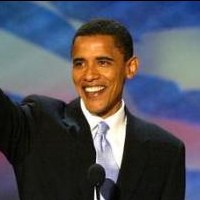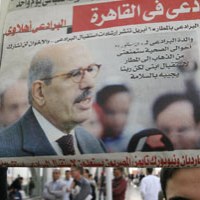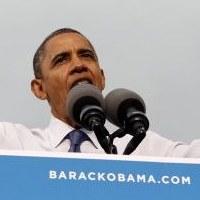![]()
Sun, Nov 05, 2010 | The Meir Amit Intelligence and Terrorism Information Center
Iran Calls Documents On WikiLeaks Website “An American Fabrication” and Part Of A “Psychological Warfare” Campaign
Following the publication of the documents on Wikileaks, Iran has claimed this week that the reliability of the leaked documents must be questioned. President Ahmadinejad commented on the documents’ exposure by saying that it was a “diabolical” and deliberate publication by the U.S. as part of its psychological warfare campaign against Iran. He noted that the documents on requests made by Iran’s Arab neighbors of the U.S. to attack his country were not true, and that they would not hurt the friendly relations between the countries (various news agencies, November 29).
Iranian media also seriously questioned the reliability of the documents. A commentary article released by Mehr News Agency raised three possibilities about the identity of those responsible for the documents’ exposure. One possibility is that the documents are, indeed, authentic, and that Arab countries in the region had actually asked the U.S. to attack Iran. The news agency claimed that the likelihood of such a scenario was low since Arab countries were well aware that the damage they would suffer as a result of a U.S. attack on Iran was greater than any possible benefit. Iran had already made it clear that in the event of such an attack it would take action against U.S. targets around the world, mainly in Persian Gulf states. Therefore, not only would Arab countries gain nothing from a U.S. attack on Iran—such an attack would be detrimental to their own interests.
A second possibility is that the U.S. is responsible for the distribution of the documents in order to compromise the friendly relations between Iran and its Arab neighbors. History has shown, the article says, that if the U.S. was not behind the documents’ exposure, it would have already found a way to get rid of the manager of Wikileaks. A third possibility is that a third country, such as Russia or China, has distributed the documents in order to compromise U.S. interests (Mehr, November 29).
The conservative daily Keyhan also ruled out the possibility that the documents were authentic, claiming that they were not secret and even forged. If the White House had information on long-range missiles being transported from North Korea to Iran, Keyhan argued, it would have promptly transferred that information to the UN Security Council to persuade it to isolate and impose sanctions on Iran, having so far failed in its efforts to achieve a consensus against Iran in the Security Council. According to the daily, the documents are meant to be used in the psychological warfare waged by the U.S. against Iran. The Wikileaks website is part of the “soft war” waged by the U.S. against Iran, and would have had no significance if it hadn’t been for the extensive coverage on Western media (Keyhan, November 30).
In general, Iranian press has almost completely ignored the contents of the documents directly pertaining to Iran, preferring instead to focus on other aspects of the leak. The government daily Iran claimed that the documents proved that the mission of American diplomats stationed worldwide had changed from gathering information and writing political reports to espionage and gathering personal information on various political figures. The transformation of U.S. embassies into espionage centers, according to the daily, will likely have a detrimental effect on the relations between Washington and other world capitals, and even America’s allies will now exercise more caution in their contacts with it (Iran, November 30).
The reformist daily Mardom Salari has also preferred to almost completely ignore the contents of the reports and focus on the so-called predicament of Western press. An editorial published by the daily says that the media appear to have forgotten that their main task is to provide reliable, complete information to the public, and not to betray society by serving the economic interests of large companies and lobby groups. The daily claimed that Western press had once been independent and considered its main role to be the exposure of government corruption. Nowadays, however, the lives of some investigative reporters are at risk while others live in fear, which is why most reporters take no serious action to expose government corruption and prevent government crime (Mardom Salari, November 30).
Last week DebkaFile, an Israeli intelligence and security news service, also reported that Iran’s President Mahmoud Ahmadinejad predictably pointed to the disclosures as “worthless” and an American attempt to harm its enemies rather than itself. The leaked calls from Arab leaders to destroy Iranian nuclear facilities he dismissed as “mischief” and a “Satanic plot” which would have no impact on his country’s “friendly” relations with regional states. Ahmadinejad denied they were leaks at all, insisting they were deliberately orchestrated by the US government for “political” reasons and “psychological warfare” – meaning that Julian Assange was working for Washington. (Debka-Net-Weekly, Issue 472)



 RSS
RSS











#Iran Calls Documents On #WikiLeaks Website “An #American Fabrication” and Part Of A “Psychological Warfare” Campaign | http://j.mp/g4Gd6Q